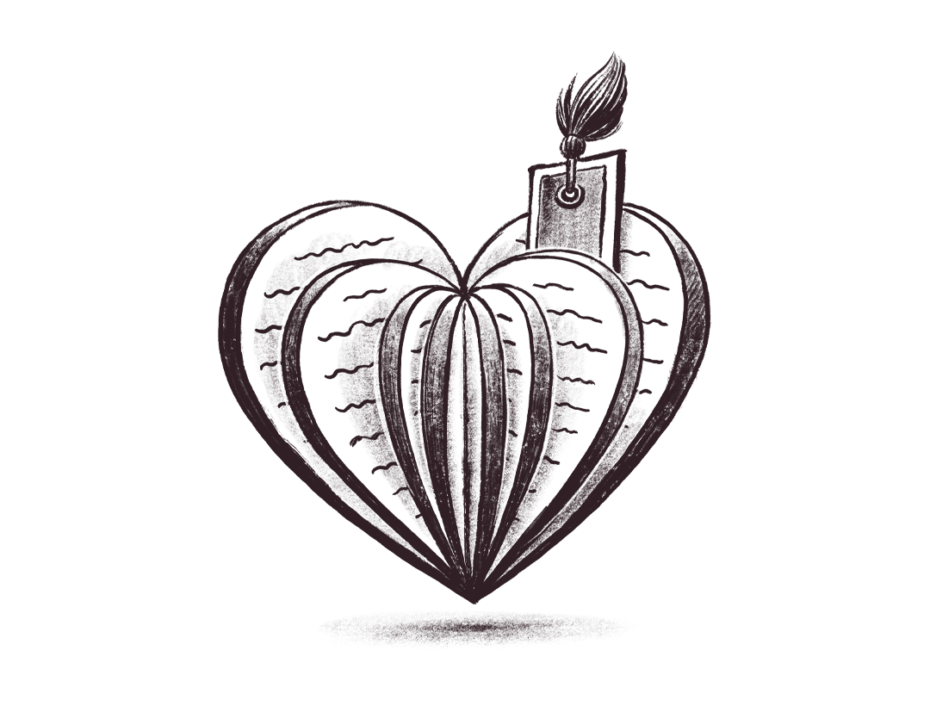Ariah’s lived experience of suicide story

This is a story by Ariah (they/them). They have shared their lived experience of suicide with us. Please consider if you are ready to read about sensitive topics. If you feel like you want to stop reading, there is a Quick Exit button on the top right of this page.
You can read other lived experience stories here.
Coming out again and again and again
I flick through the pages of the Sydney Film Festival guide looking for the LGBTQIASB+ section. Scanning, scanning – so many coming out stories, a teen coming out story, a delayed coming out story, a sad coming out story. My housemates groan as I read the synopses out to them.
These are the same stories we see repeated at every film festival.
Where is the fuller story about how we continue to live each day and create a life – just like everyone else?
Where are the windows into gay life that are simply that? A glimpse. A cameo of the rare, unique and beautiful thing we call a life? Where are the frames that follow on from that first coming out?
I had developed a rhetoric of “I hate coming out stories” and wondered whether this was my own internalised stigma.
Maybe I didn’t want to think about these stories because I was struggling through another rebirth – another coming out – myself?
Life is about continually rediscovering who you are through your experiences. It is a series of recreations of yourself as you integrate all you go through – good and bad – and let those experiences walk with you.
This happens notably with big life changes, like loss – losing an important job, losing a part of your identity (wanted or not wanted), having a loved one die, or incurring reduced physical capacity. It happens with grief, but it happens with gain too – like becoming a homeowner or a parent, welcoming a new partner into your constellation, or when you attain a goal in how you present to the world that more closely aligns with your identity. It happens with age, and it happens with ideas – like how our understanding of the world over time can change us.
Our primitive brain (at the very core of our greater brain) wants to avoid change, so, as humxns we can sometimes resist it if it is not to our liking. But even with the change we do like we don’t really know how it is going to change us. So, we just pretend it is not happening – rebirth is scary and exhausting.
But us queer, rainbow, unicorn, trans of all genders, do-it-our-own-way gays, we are experts at being reborn, if purely out of necessity. Some of us have done it multiple times, through the lens of our visible gender or our evolving sexual identity. Our fluid and changing identities weave into life.
I didn’t even know I was being reborn. A space just opened up to do it, to be it. Amongst the colours of WorldPride, in the routine of my favourite weekly dyke bar gatherings, I reconnected with friends to discover they are doing the same work of navigating shit and trying to re-create themselves, just like I was. I was not alone.
*
I have worked in Mental Health and survived my own issues with finding meaning in life and regulating my emotions. Born a bag of tears, the big feels and I have wrestled many times. Sometimes with psych drugs thrown in the ring, along with hospital visits and countless hours of therapy. I don’t mind it too much.
Most recently, I spent years living with and supporting a partner, whom I loved deeply, with their own mental health issues: neurodivergence, past trauma, chronic pain, medical treatment plans, panic disorder diagnosis, self-harm and suicidality. Some of these experiences I share. Many of us do.
They are the old clothes of stigma, discrimination, marginalisation, and patriarchal and religion-based moral codes. They are the clothes we were dressed in as children that became too tight, so they have become hard to take off. We need help. So, we help each other. In the ways we know how to – we always have.
*
For a time, I felt so isolated living rurally that I had become a version of myself I didn’t recognise. I had no context apart from the bush and nature, which I am sure saved my life many times.
But what really saved my life was a queer dating app (and a date I went on), through which I found a queer craft group near where I lived. It had been established by a new local who moved to the area from the city. I was glad for its presence and attended regularly. I felt connected, validated and at ease in this group of like-minded people.
As I began to make connections and the new person emerging from within me was being welcomed, I found I could change my name and pronouns easily. In this one space, in my little bush life, nothing was questioned. As new parts of me started to take shape in this queer craft nest my relationship finally broke down and I began planning to move back to where I had grown up – the city.
I came back as a different me. I was coming out the other side of many years of wrestling with suicidality – both mine and my partner’s. It had been lots of hard work to get through, but the key was reconnecting socially.
I worked hard to reconnect with people once I moved because I knew this was what would nurture me. People. The queerer the better. I attended workshops, volunteered for events, dragged up (which I never usually do), and slowly, I breathed life into a new me.
Actually – I was just me. I was letting out a part of me that had not been out for a while. It had been squashed away by the shit happening in my life.
*
Possibly the biggest part of this rebirth has been the opportunity to share with LGBTQIASB+ peers. Now in my 40s I know there are spaces today where my mental health needs and my LGBTQIASB+ identity can be held together. This has not been the case until recently. For me it has brought together the two most important aspects of my life and created a space where I have found refuge and healing, validation and agency.
Most of the support I have received has been of the informal peer variety. I have trained as a mental health peer support worker and worked in a paid role for many years, but not always with queers, and not always in a space safe for queer identity to be visible. Instead, support has come from within community and the deep understanding of suicidal crisis, ideation, and mental health awareness that we offer each other outside of designated work roles.
Access to a community that validates and upholds you is a salve for the times we question life.
After this most recent rebirth, I felt like a teenager again. I know what it feels like to question life but now I am feeling that tinge of ‘invincible’ that youthful naivety brings.
I wondered if I was having a mid-life crisis, but I was corrected by a facilitator in an LGBTQIASB+ training workshop I attended one day when I shared this thought. They suggested I was just having a “midlife rebirth” instead. They said, “us queers – we don’t need those heteronormative crises. We practice rebirth. We keep practicing so we can keep doing it better each time. And each rebirth gives us the skills to help each other do it better each time, too. It’s not a crisis. This is how we survive”.
